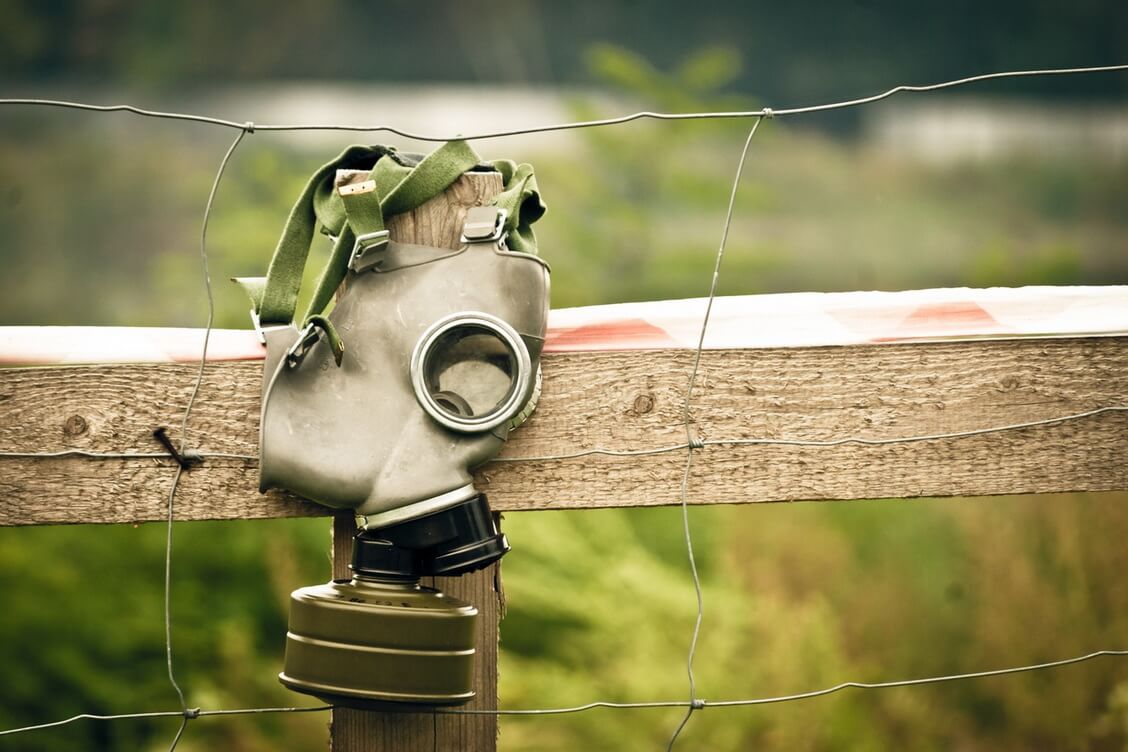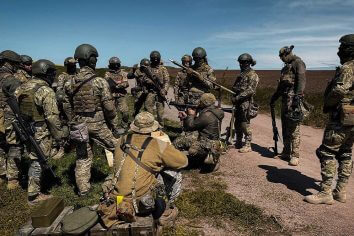The Belarusian leader tries to get as much as possible from Moscow for being a co-aggressor, as evidenced by Russian President Vladimir Putin’s visit to Minsk on May 23-24.

Nuclear scaremongering
Upon landing in Minsk late on May 23, the Russian president said he would discuss with Łukašenka the second phase of the exercise involving non-strategic nuclear weapons, which Moscow and Minsk announced earlier this month.
After the May 24 talks, Putin noted that Russia conducted routine nuclear drills and did not mean to escalate.
“The only difference being that after the deployment of part of the non-strategic nuclear potential in the territory of Belarus, we do it together with our Belarusian allies,” he said.
Thus, he actually admitted that it was a Russian exercise, in which Minsk was involved with the only purpose to frighten Ukraine and Europe.
No matter how hard Łukašenka tries to cast himself as the leader of a nuclear power, he only serves the Kremlin.
“We are not doing anything special. We are training. . . . We must not let a punch get through like we did in the middle of the last century,” Łukašenka said, apparently alluding to what Soviet history textbooks describe as Nazi Germany’s unexpected attack on the USSR in 1941.
The Belarusian ruler treats the West as Nazi Germany, even though Europe has not attacked either Belarus or Russia. It is the other way round. Since 2014, Russia has grabbed foreign territory, claiming “historical rights” to it, just as Hitler did during World War II.
Minsk’s cautious economic demands
Before 2020, Łukašenka demanded vocally preferential treatment from Moscow. As his dependence on Russia grows, his tenor has softened.
“First of all, it is necessary to quickly complete work on a common industrial policy of the Union State,” Łukašenka said, calling on Moscow to lift protective measures.
“I think you will agree with my point that in the Union State we should not restrict ourselves by closing ourselves off from each other in our common market,” he told Putin during the talks.
He was a bit more insistent at the news conference after the talks. “We must eradicate the remaining protective measures and restrictions once and for all. Otherwise, not only our peoples, but we ourselves will not be able to understand each other.”
He did not specify what measures worried him in particular. Clearly, Minsk wants Belarusian goods to fill market niches in Russia.
Cheap energy
Energy prices are the most contentious issue in relations between Belarus and Russia.
“It is necessary to finalize the terms of oil and gas deliveries to the Republic of Belarus. We have been discussing it for several years . . . and today Vladimir Vladimirovich made a decision to that effect. I think the governments will finalize these agreements in the next few days,” Łukašenka said.
“We have agreed on all the parameters for gas for the next few years,” Putin confirmed.
In other words, Łukašenka seems to have persuaded Putin to extend gas price discounts.
Anyway, this would be a temporary deal, whereas Minsk seeks a long-term arrangement, such as a common market for gas, oil and petroleum products.
Putin was somewhat vague on the matter. “As far as the common market is concerned, work is progressing. Everything is going according to plan. There are no disagreements, there are slightly different approaches among experts.”
“All issues in the gas sector have been resolved for the period up to 2026,” including pricing, said Dźmitryj Krutoj, Belarus’ ambassador to Russia, later in the day.
When it comes to a long-term deal, “we need to work out a final algorithm for the convergence of natural gas prices in Russian rubles,” he added.
In fact, the energy-rich empire is not interested in market-based relations with Belarus and prefers to keep Minsk on a short leash – if it behaves well, it gets a discount; if not, it gets a price hike.
At present, Putin is generous, because he needs an ally during the war. But his generosity comes in small doses.
Integration
“In spite of everything, Minsk and Moscow continue to pursue the course of strengthening integration,” Łukašenka said.
“Moreover, our projects have reached beyond the Earth’s surface,” he said in an apparent reference to Maryna Vasileŭskaja’s flight aboard a Russian spaceship, which was hyped out of proportion by propaganda.
That flight was more space tourism for the Belarusian flight attendant.
Łukašenka admitted in April that the trip would have cost Belarus $70 million, but “Putin did well, he helped. They financed the preparation and the launch.”
Łukašenka embraces such help from the bottom of his heart. He cleverly exploits resources of his neighbor to project himself as the ruler of a space power.
But the reality is not so nice. Sometimes he can strike a fortune, but playing integration games with the empire is generally a lost cause.
This game has already cost Minsk the reputation as a co-aggressor and an iron curtain descending between Belarus and Europe.
The empire forces Belarus to surrender its sovereignty bit by bit.
Russia sees Belarus as just a convenient military outpost. By deploying tactical nuclear weapons, the Kremlin has turned Belarusians into hostages of its nuclear blackmail.
The two dictators tried to shame Volodymir Zelensky, whose five years of presidency have expired, while the election has been postponed because of martial law.
Putin claimed Zelensky’s legitimacy was over, while Łukašenka was not so sure.
“There is no legal clarity there, and there cannot be because of the deep democracy, you know. Everything is suppressed there.”
The two autocrats looked really ridiculous in their attempt to portray themselves as paragons of legitimacy. Especially Łukašenka, whom Putin saved from peaceful protesters in 2020 by sending troops to the Belarusian border.
